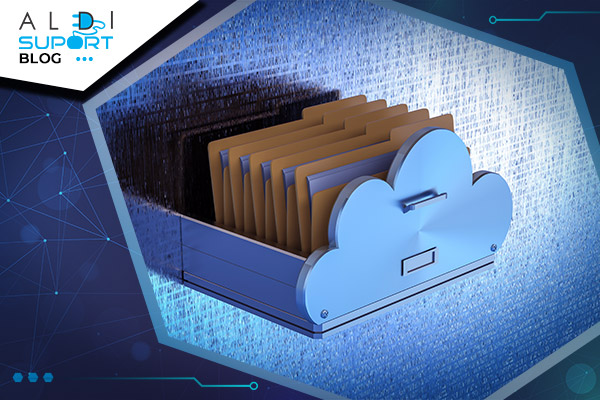Data is an essential asset for both individuals and organizations. Losing this data can have devastating consequences, from financial losses to the compromise of sensitive personal information. Therefore, regular data backup becomes an indispensable practice. In this article, we will explore the importance of data backup and present the best practices for achieving it, ensuring that your data is always protected.
Tabel de Conținut
Why is Data Backup Important?
Data backup is the process of copying and storing your data in a location other than the original so you can recover this data in case of loss. The importance of backup cannot be overstated for several reasons:
Protection Against Accidental Data Loss
- Human Errors: Even the most cautious users can make mistakes. Accidentally deleting essential files is a common problem, and a recent backup can save the day.
- Hardware Failures: Hard drives and other storage devices can fail without warning, leading to permanent data loss. Regular backups ensure your data is protected in such cases.
Defense Against Cyber Attacks
- Ransomware: Atacurile de tip ransomware pot cripta datele tale și solicita o răscumpărare pentru deblocarea lor. Backup-ul regulat și stocat offline poate preveni pierderea datelor în astfel de atacuri.
- Viruses and Malware: Viruses and other forms of malware can corrupt or delete your data. Having a backup allows you to quickly restore the system to a functional state.
Business Continuity
- Activity Interruption: For companies, data loss can disrupt daily operations, affecting productivity and revenue. Periodic backups enable quick recovery and minimize downtime.
- Legal Compliance: Many industries have strict regulations regarding data storage and protection. Regular backups help comply with these legal requirements.
Types of Backup and Their Advantages
There are several backup methods, each with its own advantages and disadvantages. Understanding these types will help you choose the right solution for your needs.
Full Backup
- What It Is: A complete copy of all your data. This type of backup includes all the files and folders selected for backup.
- Advantages: Simple to restore, as all data is in a single backup.
- Disadvantages: Takes a lot of time and storage space.
Incremental Backup
- What It Is: Only the files that have been modified or added since the last backup (full or incremental) are copied.
- Advantages: Saves time and space, as only changes are copied.
- Disadvantages: Restoration can be complicated, as it requires the last full backup and all subsequent incremental backups.
Differential Backup
- What It Is: Copies all files modified since the last full backup.
- Advantages: Restoration is faster than incremental backup, as it only requires the last full backup and the last differential backup.
- Disadvantages: Takes up more space than incremental backup but less than full backup.
Cloud Backup
- What It Is: Storing data on external servers accessible via the internet.
- Advantages: Easy accessibility from anywhere, protection against physical data loss.
- Disadvantages: Dependence on internet connection and associated costs of cloud storage services.
Best Practices for Data Backup
Creating an effective backup involves more than just copying files. Here are some essential practices to ensure your backup is reliable and efficient.
Implementing the 3-2-1 Rule
- 3 Copies of Data: Keep at least three copies of your data (original and two backups).
- 2 Different Media: Store copies on two different types of media (e.g., external hard drive and cloud).
- 1 Offsite Copy: Keep at least one copy offsite (e.g., in the cloud or at a friend’s house).
Automating the Backup Process
- Automatic Backup Programs: Use software that allows scheduling automatic backups. This way, you never forget to back up.
- Backup Verification: Automate the verification and testing of backups to ensure they are fully functional and not corrupted.
Protecting Backups with Passwords
- Data Encryption: Use encryption to protect backups against unauthorized access.
- Strong Passwords: Ensure backups are protected with strong and unique passwords.
Storing Backups in a Secure Location
- Secure Physical Locations: Keep backup devices in a secure place protected from external factors like fires or floods.
- Using Trusted Cloud Services: Choose cloud providers that offer robust security and reliability.
Recommended Tools and Solutions for Backup
There are numerous tools and solutions available that can simplify the backup process and provide additional protection for your data.
Backup Software for Personal Computers
- Acronis True Image: Offers full and incremental backups, as well as cloud storage options.
- EaseUS Todo Backup: Easy-to-use solution that offers full, incremental, and differential backups.
Business Backup Solutions
- Veeam Backup & Replication: Ideal for backing up and replicating servers and virtual infrastructures.
- Carbonite: Provides automatic backup and encryption for business data, with cloud storage options.
Cloud Storage Services
- Google Drive: Offers generous storage space and easy integration with other Google services.
- Dropbox: Popular for its ease of use and automatic synchronization features.
- OneDrive: Integrated with Microsoft Office, ideal for Windows users.
Conclusion
Data backup is an essential practice in protecting valuable information against accidental loss, cyber-attacks, and hardware failures. Implementing a solid backup plan and following the best practices presented in this guide will help you protect your data effectively and ensure that it is always available when you need it. Do not underestimate the importance of regular backups and ensure your data is always safe.
Întrebări frecvente Backup Date
What is data backup?
Data backup is the process of copying and storing data in a location other than the original to protect it against loss.
Why is it important to back up data regularly?
Regular backup protects data against accidental loss, hardware failures, and cyber-attacks, ensuring business continuity and legal compliance.
What are the best practices for data backup?
Implementing the 3-2-1 rule, automating the backup process, protecting backups with passwords, and storing them in a secure place are among the best practices.
What types of backups are there?
There are full, incremental, and differential backups, each with specific advantages and disadvantages depending on user needs.
What backup solutions do you recommend for individual users?
Acronis True Image and EaseUS Todo Backup are excellent solutions for individual users, offering various backup options.
What are the most popular cloud storage services for backup?
Google Drive, Dropbox, and OneDrive are among the most popular cloud storage services, offering generous storage space and automatic synchronization features.





